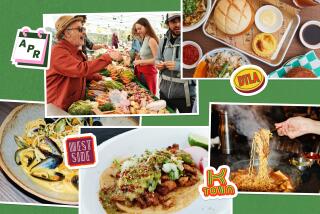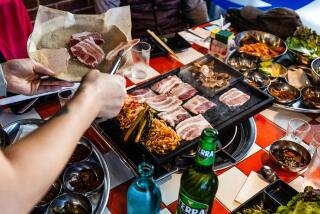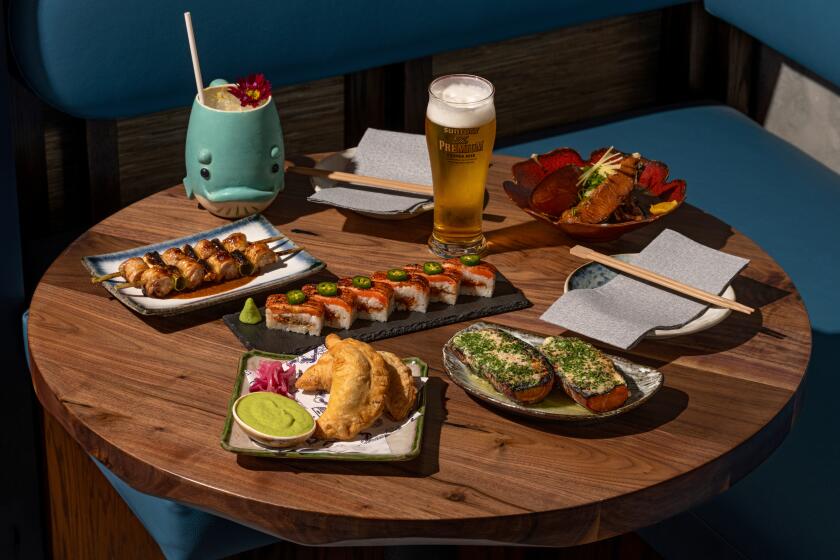Artisanal squabble
INDEPENDENT FARMERS making too much money? This could happen, if it is happening, only in the rarefied world of the Slow Food Movement -- a culture, if not a cult, started by serious foodies around the idea of sustainable local farming and seasonal, range-fed, organically grown, artisanal (you get the picture) ingredients home cooked according to indigenous traditions and enjoyed in leisurely social gatherings. And if that’s not enough gourmet jargon for you, they call their local chapters “convivia.”
It’s hard to argue with the idea of healthier, fresher food that’s good for the environment. Yet the first Slow Food festival in the U.S., slated for May 2008 (it takes time to plan these things!), managed to bog down in controversy oh-so-fast.
Turns out that the movement’s founder and co-organizer of the San Francisco festival, the Italian “anti-McDonald” Carlo Petrini, took a few pokes at that city’s beloved Ferry Plaza farmers market. In his newly translated book, “Slow Food Nation,” he called its prices “astronomical” and its clientele privileged. That, according to the San Francisco Chronicle, so miffed the farmers that his scheduled book signing there was canceled.
One farmer quoted in Petrini’s book admitted to inflating his prices so that he could support his family and still have time for surfing. But other farmers say their prices are barely higher than those in supermarkets. We haven’t browsed at any San Francisco supermarkets lately, but the prices at this farmers market have widened the eyes of more shoppers than Petrini. Chat rooms marvel at the $10 jars of jam and the $9 tamales.
Of course, the convivia of the world shudder when tagged as elitist, as they often are. They never meant to exclude others; they simply have more money to spend in support of small farms, a cleaner form of agriculture, more nutritious food and a less stressful way of living. In Europe, the tradition of seasonal, local food never really died out. But in the U.S., where beautiful, tasty produce seems more like an occasional exercise in nostalgia, slow-feeders are less likely to realize that their way of life is out of reach for the masses.
The fast-growing question for the Slow Food Movement in this country is whether it can expand beyond the privileged few to put high-quality food within reach of others, especially inner-city residents who have a hard time finding fresh veggies. Petrini made his international reputation on outrage about food trends; he started the Slow Food Movement more than 20 years ago in response to the opening of the first McDonald’s in Rome. But before he gets too outraged over foodie elitism, he might remember that his first festival here is planned for San Francisco, not Oakland.
More to Read
Eat your way across L.A.
Get our weekly Tasting Notes newsletter for reviews, news and more.
You may occasionally receive promotional content from the Los Angeles Times.






